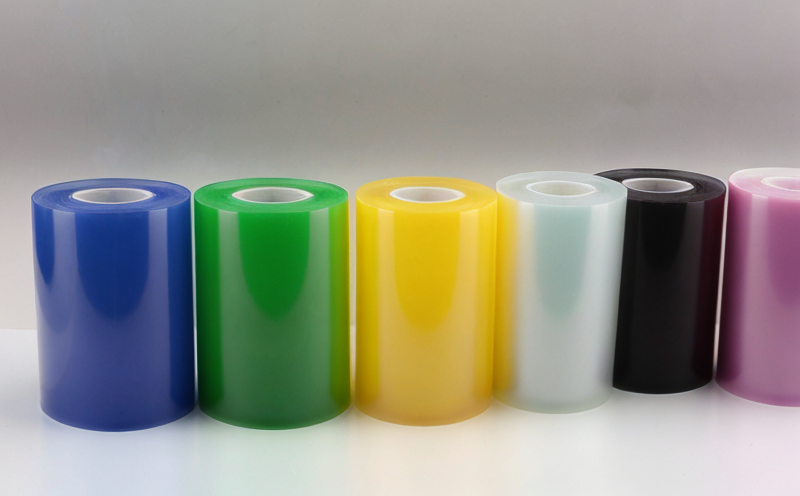ISO 20457 Dimensional Stability Testing of Plastic Films
The ISO 20457 standard specifies the procedure for determining dimensional stability in terms of linear shrinkage and warping due to temperature changes. This test is critical for ensuring that plastic films meet performance requirements, especially in sectors where film integrity and durability are paramount.
This testing method is essential for industries such as packaging, automotive, electronics, and consumer goods. For instance, in the packaging sector, dimensional stability ensures that containers maintain their shape under temperature variations, which is crucial for food safety and product quality control. In the automotive industry, it guarantees that components withstand extreme temperatures without compromising on form or function.
The test involves subjecting the plastic films to a controlled thermal cycle. The specimen undergoes heating, holding at a specified temperature for an extended period, and then cooling back to room temperature. After this process, dimensional changes are measured accurately using precision instruments. This measurement helps identify any shrinkage or warping that could affect performance under real-world conditions.
Understanding the dimensional stability of plastic films is vital because it directly impacts product reliability and customer satisfaction. For example, in the electronics industry, a film's inability to maintain its original dimensions can lead to component misalignment or malfunctioning. Similarly, in consumer goods packaging, such instability could result in leaks or compromised seals.
ISO 20457 testing ensures that plastic films meet stringent quality standards, thereby enhancing product performance and longevity. This is particularly important for materials used in high-stress environments where even minor dimensional changes can have significant consequences.
| Standard | Description |
|---|---|
| ISO 20457-1:2016 | Determination of dimensional stability in terms of linear shrinkage and warping due to temperature changes. |
| ASTM D3898 | Standard test method for determining the thermal shrinkage rate of polymer films. |
Applied Standards
The testing adheres to ISO 20457-1:2016, which provides the procedure for determining dimensional stability in terms of linear shrinkage and warping due to temperature changes. This standard is widely recognized for its robust methodology ensuring accurate and reliable test results.
ASTM D3898 complements ISO 20457 by offering additional insights into thermal shrinkage rates, which are crucial for understanding the behavior of plastic films under varying temperatures. Both standards ensure that the testing process is consistent and repeatable, providing confidence in the results.
The application of these international standards guarantees compliance with industry best practices and regulatory requirements. This consistency is vital when dealing with global supply chains where uniform quality assurance across different regions is essential.
Eurolab Advantages
- Comprehensive expertise in plastic film testing, leveraging state-of-the-art equipment and methodologies.
- Dedicated team of experienced engineers specializing in polymer science with a deep understanding of ISO 20457 standards.
- Access to advanced laboratories equipped with precision instruments for accurate dimensional measurements.
- ISO/IEC 17025 accreditation ensuring that all testing is conducted under strict quality control and assurance protocols.
- Robust reporting capabilities providing detailed insights into test results, facilitating informed decision-making processes.
At Eurolab, we pride ourselves on delivering exceptional service with a focus on accuracy, reliability, and timely delivery. Our commitment to quality ensures that you receive comprehensive reports that meet your specific requirements.
Environmental and Sustainability Contributions
- Reduces waste by ensuring that only films meeting dimensional stability standards are used in production processes, minimizing material rejections.
- Promotes recycling through the use of high-quality materials that maintain their integrity under various conditions, thus increasing their lifespan and reducing environmental impact.
- Sustains resource efficiency by optimizing manufacturing processes based on accurate test results, leading to reduced energy consumption and lower carbon footprints.
By adhering to ISO 20457 standards, Eurolab contributes significantly to sustainable practices in the polymer and plastics industry. Our testing ensures that products not only meet current quality expectations but also contribute positively towards a more sustainable future.





